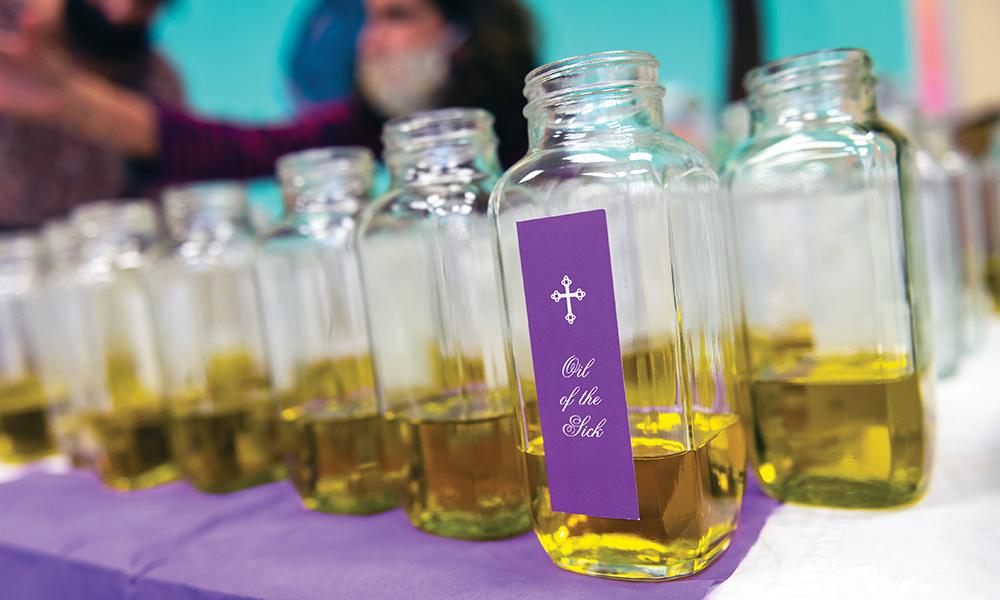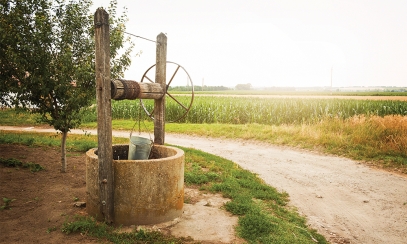
‘Christ’s Closeness, Solidarity, and Healing Will’
The Sacrament of Anointing of the Sick
The Sacrament of Anointing of the Sick
Remembering that our seven sacraments are divided into the categories of initiation, healing, and vocation, it is important for us to turn our attention to the sacraments of healing, beginning with the sacrament of anointing of the sick. It is still the case that many people think of this sacrament as “Last Rites,” or something that is only to be received when one is just about to die. In fact, I recently went to visit an elderly parishioner who is homebound, and when I entered the house, she shook her finger at me and said, “Don’t anoint me, I’m not ready to die yet!”
Remembering that our seven sacraments are divided into the categories of initiation, healing, and vocation, it is important for us to turn our attention to the sacraments of healing, beginning with the sacrament of anointing of the sick. It is still the case that many people think of this sacrament as “Last Rites,” or something that is only to be received when one is just about to die. In fact, I recently went to visit an elderly parishioner who is homebound, and when I entered the house, she shook her finger at me and said, “Don’t anoint me, I’m not ready to die yet!”
We find this sacrament clearly presented in the Letter of St. James 5:14-15. When speaking of the sick person, St. James tells us, “Let him send for the priests of the Church, and let them pray over him, anointing him with oil in the name of the Lord …” The context of this Scripture, however, teaches us that healing and forgiveness from sin are deeply connected. Our faith teaches us that all sickness and death came into the world through the disobedience of our first parents, Adam and Eve, who had been given a garden in Paradise. Now, for those who believe, all health and life come through the new Adam, Jesus Christ, Who was perfectly obedient to the will of the Father.
In this sacrament, olive oil is the important element used to administer the sacrament, together with the laying on of hands. Thinking about the olive oil used in the sacrament, I am taken in my prayer to the Garden of Gethsemane, where our blessed Lord, surrounded by olive trees in a garden, entered into an agony that would lead to our salvation.
We read in Scripture the fervent prayer of the Lord in the Garden: “Let this cup pass from Me, but nonetheless, not as I will but as You will.” (Mt 26:39) The power of this prayer is also present in the anointing of the sick. Remembering what St. Leo the Great said: “What was visible in Christ when He walked on earth is now present in His sacraments,” through the sacrament of anointing, we can feel Christ’s own agony in our sickness, and through accepting the Father’s will as Jesus did, we can go with great peace to the moment of salvation and glory.
I believe that even the olives of the Garden of Gethsemane felt the pain of the Lord and that they responded with their oil to give Him comfort. Still, olives give us oil for the bishop (or priests in emergencies) to bless in the name of Christ Jesus so that each one of us in our sickness and agony can feel Christ’s closeness, solidarity, and healing will for us.
Father John G. McDonald is currently pastor of Sacred Heart of Jesus Catholic Church in Anniston. He was principal and then president of John Carroll Catholic High School from 2008 to 2016, and he served as the Carl J. Peter Chair of Homiletics at the Pontifical North American College in Rome from 2016 to 2019.



